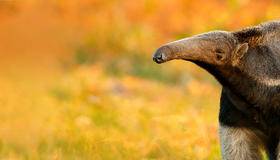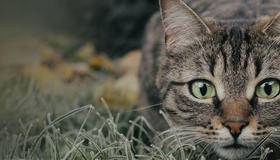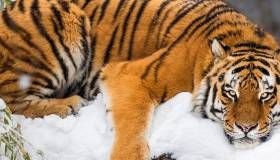
July 1, 2020 – The recent pandemic caused by the COVID-19 virus has shone a spotlight on how infectious organisms can move from one species to another, including from one species of animal to another, animals to people and even people to animals (reverse zoonosis). As barriers between animals and people and countries around the world fall, infectious disease outbreaks will continue to be a global problem.
Morris Animal Foundation has been at the forefront of responding to these infectious disease crises globally, particularly as they affect wildlife, by providing support and expertise in finding solutions to complex health challenges.
Spillover Infections
Spillover occurs when a virus or other pathogen moves from one animal species to another, such as canine distemper virus affecting tigers and lions. Increased contact between species raises the chances that spillover events occur.
Emerging Diseases
Emerging diseases are infections that have recently appeared or are rapidly increasing in a population or geographic area.
Zoonotic Diseases
A zoonotic disease is a disease passed from animals that can make people sick, such as rabies and Salmonella. But disease transmission is not a one-way street. Reverse zoonosis can occur when humans infect animals.
How We're Helping
Addressing Tuberculosis in Wildlife
Tuberculosis (TB) is a major cause of death in humans worldwide and it’s deadly in animals, too. The disease can transmit between species and the toll it takes on animals is incalculable, especially when it strikes fragile wildlife populations. Foundation-funded, TB-focused projects include the development of field tests to quickly diagnose TB in elephants and lions. These tests can help wildlife managers identify infected individuals to prevent further transmission as well as track disease outbreaks.
Understanding Spillover Events in Tigers
Canine distemper virus first made the jump from domestic dogs to wildlife more than 40 years ago and new species are becoming infected with devastating consequences. Foundation-funded researchers stepped in when canine distemper virus threatened Siberian tigers. They studied the population to learn more about the source of the disease and found strategies to stop the virus from spreading.
Stopping Reverse Zoonoses in Primates
Increasing contact between primates and humans has resulted in serious illnesses and deaths in already-threatened primate populations. Recent Foundation-funded studies have led to the development of a rapid test to detect tuberculosis in mountain gorillas as well as protocols to prevent human adenovirus infections in mountain gorillas and golden monkeys. These results have informed how we care for wild primates and helped prevent human transmission of dangerous diseases to our closest animal relatives.
Looking Forward
The Foundation is a leader in feline coronavirus research, a disease that does not affect humans but is part of the large coronavirus family that includes COVID-19, SARS and MERS. Many of our current and former feline coronavirus researchers are stepping in to lend their expertise toward fighting the current COVID-19 pandemic.
Studying animal diseases provides crucial information to prevent infectious disease outbreaks in animals and help stop outbreaks in people, too.




